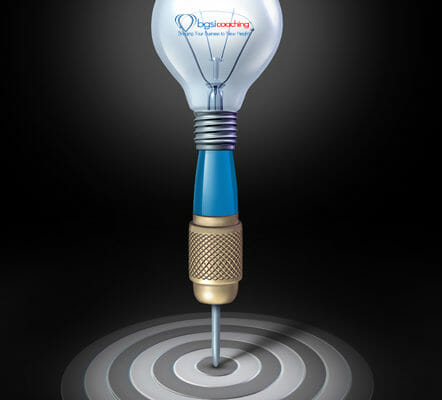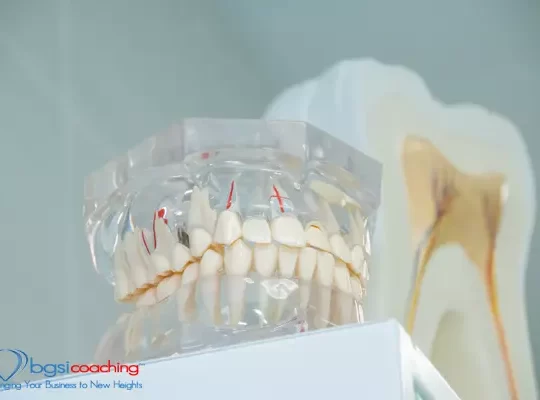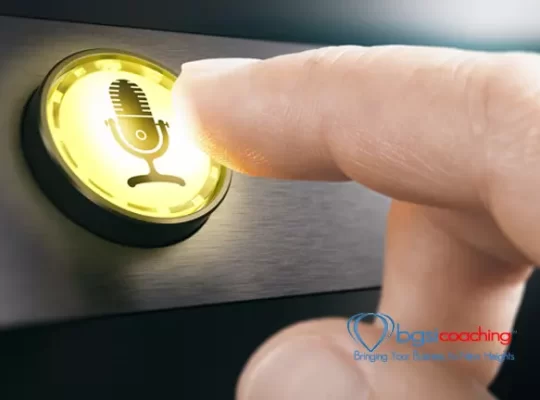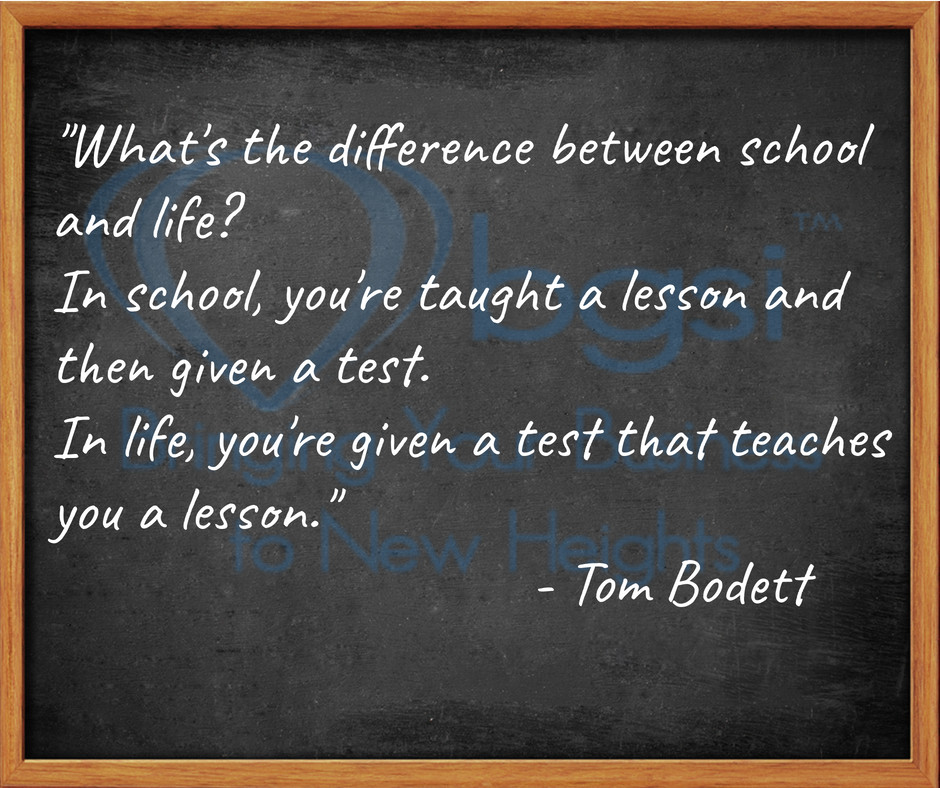This week is National Recovery Week and in honor of that, we are pleased to bring you an episode where we talk about opiates and other substance abuse and addiction recovery programs for anyone that may need that help.
According to a CDC study, in the first 12-months of the COVID-19 pandemic, there was an estimated 100,306 drug overdose deaths in the US, an increase of more than 28% from the same period the year before.
The number of people who really need help, according to my guest Michael Brier, versus the reported number of people seeking help today and those who need it is probably 10x! There are about 2 million people currently getting help where Michael estimates the true number is about 20 million people and that’s only the tip of the iceberg as we’re still dealing with the fallout from the COVID-19 pandemic – the isolation, masking requirements, changes in routine and more.
How we go about helping these people and identifying who really needs help is our challenge and finding new ways to help those affected by substance abuse and reducing the stigma associated with seeking help is key to helping those impacted. We need more people to know that substance abuse may be a covered benefit by medical insurance plans (you’ll need to check with your particular plan for more details to ensure coverage) and know how to take advantage of these services.
If you are someone in need of help or a family member seeking help for someone, please either search for local recovery solutions or reach out to Michael at https://www.drughelp.com.

Life & business intersect in many places. After all, we cannot have a business without looking at the human component of business.
This podcast with Jennifer R Glass, CEO of Business Growth Strategies International & BGSICoaching.com is all about the meaning of life and business & the interesting ways they intersect. The show is for entrepreneurs and aspiring entrepreneurs on the search for what makes people successful and how to get there themselves.
Listen in as Jennifer & her guests dive deep into what makes people tick & how they make their businesses work for the betterment of others.
This week is National Recovery Week and in honor of that, we are pleased to bring you an episode where we talk about opiates and other substance abuse and addiction recovery programs for anyone that may need that help.
According to a CDC study, in the first 12-months of the COVID-19 pandemic, there was an estimated 100,306 drug overdose deaths in the US, an increase of more than 28% from the same period the year before.
The number of people who really need help, according to my guest Michael Brier, versus the reported number of people seeking help today and those who need it is probably 10x! There are about 2 million people currently getting help where Michael estimates the true number is about 20 million people and that’s only the tip of the iceberg as we’re still dealing with the fallout from the COVID-19 pandemic – the isolation, masking requirements, changes in routine and more.
How we go about helping these people and identifying who really needs help is our challenge and finding new ways to help those affected by substance abuse and reducing the stigma associated with seeking help is key to helping those impacted. We need more people to know that substance abuse may be a covered benefit by medical insurance plans (you’ll need to check with your particular plan for more details to ensure coverage) and know how to take advantage of these services.
If you are someone in need of help or a family member seeking help for someone, please either search for local recovery solutions or reach out to Michael at https://www.drughelp.com.
About Michael: Michael Brier is the CEO of the fastest growing addiction treatment group, Recovery Connection. He is a serial entrepreneur and a passionate social impact investor. His book “The Silent Pandemic” rocketed to #1 on the Best Seller List. Michael has been featured on numerous media and podcasts speaking on either business or healthcare matters.
Connect with Michael on Facebook, Linkedin, and on the web at https://www.drughelp.com

About Michael: Michael Brier is the CEO of the fastest-growing addiction treatment group, Recovery Connection. He is a serial entrepreneur and a passionate social impact investor. His book “The Silent Pandemic” rocketed to #1 on the Best Seller List. Michael has been featured on numerous media and podcasts speaking on either business or healthcare matters.
Connect with Michael on Facebook, Linkedin, and on the web at https://www.drughelp.com
Transcript (auto-generated; may contain errors):
Jennifer Glass (Business Growth Strategies International)
Hello, and welcome to another episode of MOJO: The Meaning of Life & Business.
On today’s program. We’re going to be talking about the pandemic of opioid death and addiction, along with the stigma around it. And given that it is National Recovery Week, it is really be a good way of us addressing the opioid addiction in this country long before the pandemic. Opioid addiction has been something that has been a constant issue in so many areas in our country. Many families have been dealing with it from people that have come to death, from opioid overdose to people that have lost everything and relationships, jobs, family, all sorts of issues can happen. And so as we look at the opioid pandemic really. Happy that I have an incredible guest with us today who’s going to be sharing about the opioid pandemic and what his company is doing with opioid addiction. But before I bring were guessed on, let me tell you a little bit about Michael. Michael Breyer is the CEO of the fastest growing addiction treatment group Recovery Connection. He is a serial entrepreneur and a passionate social media investor. His book The Silent Pandemic rocketed to number one on the best seller list. Michael has been featured on numerous media and podcasts speaking on either business or healthcare matters. Michael, welcome to the show and thank you for being here.
Michael Brier
Thank you for having me, Jennifer.
Jennifer Glass (Business Growth Strategies International)
Absolutely. So Michael, let me ask you, opioid addiction seems like you have to be from a certain social class. Or used to think that you had to be from a certain social class. But we see that that’s not necessarily true anymore. What are some of the issues that people in your world, if you will, are experienced thing that lead them to being addicted to opioids?
Michael Brier
Well, I guess the perfect segue would be the HBO or is it the Netflix series Dopesick about the Purdue Pharma people who decided that they were going to get themselves rich by producing lots of opioids and flushing them into the market and taking individuals from any socio economic background and getting them addicted to this medication. And then, well, the wheels fell off the wagon and they had to stop, actually. Pushing out as much illegal prescriptions as possible. And people were left holding the bag because they could no longer get the medication that they were used to getting from their physician. So that is still unfolding as we speak today. And unfortunately, a lot of people, when they think about drug addiction, just the word drug addiction, the first thing that comes into their mind is that they’re thinking of a low income, homeless, Indigenous person who’s using illegal prescriptions or illegal drugs on the streets. And that’s what’s causing the problem. And what we’ve come to discover is that drug addiction actually doesn’t discriminate everybody is like, opened. Game for being potentially falling under the influence of opioid use. And we’re seeing it from ages, adolescents, all the way to people who are in their 80s and 90s that are unfortunately bearing the brunt of all the illegal medications that are out there in the marketplace right now.
Jennifer Glass (Business Growth Strategies International)
So as we look at the addiction, people are suffering from opiate addiction. What are some of the things that we need to be on the lookout for if we see something, somebody that may be addicted before they even start seeking help?
Michael Brier
Wow. There’s always tells. But like anything, a lot of times the tells are more noticeable after the fact. When you’re actually fully aware that there is a problem, then there is. While the person is starting starting to process through the cycle to become addicted to any type of medication or any kind of drug use. And I mean, there’s things as noticeable as their eyes and their speech and their ability to show up, to work on time and responsibility and all of the typical things. There’s so many of those tells. But for most of us who don’t have any experience in using drugs or being with people that use drugs, it takes quite a while before. Or our little antenna go up in the back of our heads to say, oh, I think my friend or my family member has a problem and I need to get some help. And even if you’re just aware that is a problem, that’s not going to do it to get them help. Because I think the old Axiom is that you can lead a horse to water, but you can’t make them drink. And unfortunately, with any type of addiction issues, it really takes a person sometimes to hit the bottom, and sometimes you have to hit the bottom just a few times before you actually are willing to raise your hand and say, you know what? Can someone please help me? I think at that point, family members and friends can be a lot more Proactive. But a lot of times, until it gets to that point, there’s not a heck of a lot that’s people. People don’t want to acknowledge that they have a problem. And I think that’s not just for drug and alcohol use. I think that’s in general of life, how we all are, that we all think that we can control everything that goes on and we want to portray ourselves as the perfect individuals until we’re not perfect anymore. And then we have to acknowledge that. Yeah, maybe I could use a help up.
Jennifer Glass (Business Growth Strategies International)
And it’s definitely important, just at least starting to have conversations with people when we do know that there’s even even drug and alcohol dependency in communities. So that way people are more aware of the risk factors, more aware of the dangers, more aware. Of all sorts of issues that may come around, even if we’re not necessarily looking out for the.
Michael Brier
Well, this guy is on drugs or alcohol. Right. You know, I think the funny thing is that all of us suspect that there’s a problem in our communities, but a lot of us don’t want to acknowledge that there’s a problem in our communities. And just quick story would be a lot of times when we’re trying to open up offices, we don’t necessarily go to the poorest of communities and the demographic profile of only low income, blue collar type of people. We’ve been to many middle income communities and we’ve had conversations. And always the response you get, especially from political and government officials. Yeah, there could be a problem. There might be a problem. I’m not sure there’s a problem, but it’s probably not here. It’s probably over there type of thing. And the reality is that the problem is everywhere. And you can live in an affluent community and on your street. I wouldn’t be surprised that there’s at least one or two people who live on your street who have a drug or alcohol problem and you’re not aware of it as much as there’s not necessarily every person that you see who’s homeless or low income, they’re not necessarily addicted to drugs or alcohol. And too often in life we judge a book by its cover, and we just make assumptions that because of the way this person looks or they’re. This person behaves, they must be X. And one of that’s probably the one stigma that bothers me more than anything else. And while I preach that we need to change as a society, I’m not going to plead that I’m a perfect individual and I don’t make my own assumptions about people and life and the problems that are out there. But at least I can acknowledge that I’m an imperfect individual and that there are sometimes problems with those who look like they have no problems and there are no problems with those who look like they have problems. And I think it’s important that as a society that we recognize that what we need to do is just to say, whoever you are, whatever you need, there’s somebody. Here for you and open your arms to say when you’re ready. We’re here to help. And that’s really what it’s all about. And getting people to feel comfortable that they can open themselves up to other individuals is, I think, not necessarily only to deal with addiction pros. I think it’s to deal with almost every problem that’s out in our society.
Jennifer Glass (Business Growth Strategies International)
Absolutely. And so as we look at this person may or may not have the problem. And like you said, a politician saying there may be a problem, but it’s probably over there. There’s definitely a lot of that in the community where we’re trying to then deal with all sorts of needing to remind people of correcting people, of changing the way that people see the issue. But let me ask you, when people. Come to recovery connection. What is the process normally like before they even get there? I mean, their family typically would do an intervention of some sort.
Michael Brier
What would be the way that that somebody would end up finding you? I mean, it could be a number of different ways. Some people have to really get to a place where they need some serious intervention, and that’s not necessarily what we do at that point. They would need to go inpatient hospitalization, a rehab place, go away from their general environment for a period of time to get treatment, both for medication and or behavioral health aspects. And one time might be enough for some might be more ultimate. Times might be multiple lengths. Other times, some people have a little bit better control of their problem. They recognize their problem, and they can come to a place like ours, which is an outpatient facility, which allows them to basically come get treated just like they would if they went to see their psychiatrist, where they would get help, both for the root cause of what’s causing the addiction problem and also medication if they like to help them alleviate some of the mind control issues that they have to deal with when faced with adversity in their life. And it’s not one size fits all. Unfortunately, this problem is multifaceted. There’s multi solutions to the problems. I’m. And the difficulty is not only for companies like ours to be able to be a little bit flexible to help people, but it’s also in people themselves. Sells to recognize what it is that they really need, or at least help us steer them in the right direction for what might be the best solution for them. I don’t want to say that we’re the best for every single person. There are some people who need much more I would want to say a lot more serious assistance. Don’t forget, when we talk about additional addiction, that’s just what we see on the outside. But the root causes, the behavioral health root causes that help people or lead people to. An addiction problem are some of the other issues that need to be dealt with, and sometimes just to deal with an addiction doesn’t necessarily deal with everything else. And I think we’ve seen from covet now with so many people that have been dealing with anxiety and depression because of the quarantining and the masking and isolation and everything else, that self medication has actually increased during COVID. And the reason our book is called The Silent Pandemic is because if there wasn’t a covet right now, overdose death would be the pandemic. But because of COVID, we’re the silent one that nobody tries to talk about because we’re still trying to get out of the COVID pandemic.
Jennifer Glass (Business Growth Strategies International)
And mental health is definitely a really important weren’t. Aspect of the drug use. And it also happens to be Mental Health Awareness Month. So there’s a lot of these different pieces that are all in play in terms of this conversation. But mental health, like you were saying with the Cobid pandemic, there was definitely a lot of issues going on. Like you mentioned, the quarantine, the isolation masking and just changing to routine. So many people were used to going to an office. Now they were home. We know, unfortunately, that abuse cases went way up because people were home. They were not out and about in the community. And the schools weren’t there to help protect some of these kids, too, and not to belittle that. But we see that all of these issues related to mental health and related to. How people are dealing with the constraints of our time now is just continuing to get harder and harder. One thing that I’ve often marveled at was how did we go from a society where you heard somebody disrupted an airplane, a flight once every maybe thousand flights, 2000 flights, or maybe even more. We’re hearing that every other week. We were hearing that during the Mask mandate, we were hearing that all the beatings and everything, just all of these issues that come up. It could be because people are dependent on substances, whether it’s opiates, alcohol, whatever they could have been on them at that time may not have been, who knows? But as we move forward from here, where do used. See the opiate use and drug use overall, especially now that marijuana is legal in more States than not. I think at the moment. Where do you see all of these pieces go owing in that overdose issue, in that abuse issue, and how do we start to make sense of it all?
Michael Brier
Well, I won’t profess to be the know it all and the fear of the future, but from all the scholarly articles that I’ve read, it’s not about to get better. And in some ways, the shoe might drop in the next year or two after Covet is actually over. That a lot of the problems that we think we see right now are really masking. What might be an avalanche of issues coming down the road. Unfortunately, I don’t see the market of people needing treatment going down anytime soon. In fact, if you look statistically, the number of people that they think potentially need treatment are numbers like 20 million people. But yet the number of people who actually are getting treatment is in the range of 2 million people. And that’s currently, that’s not even what will be. And as far as drug use goes, if you watch any of those, those cool hip shows on Discovery or whatever the other channels are that have all the drug shows, fentanyl is prevalent everywhere right now. And I’m. Well, I don’t actually have an issue per se with marijuana. I think it can be used in the right circumstances. A lot of problems are caused by marijuana only because because it’s mixed with fentanyl. And people think that they’re actually just smoking a joint, but in reality, their drug dealers getting them addicted to opioids in another way, and secretly they’re going to wind up paying the price down the road. I think there’s so much of a need for access to treatment. And the lack of education out in the world, in our society about what’s available for treatment is just mind boggling. How little people really know about getting treatment. What is it all about? It’s not that hard to get treatment. Rene. And knock wood, you know, with as long as the ACA for health insurance stays in place and more States would adapt it and expand Medicaid treatment, a lot of times treatment is free and people don’t even realize that it’s just the same as if they were going to their primary care doctor, that they can get help, that there is somebody there to listen to them, to treat them, not judge them and treat them empathetically and willing to cut them some slack and understand that they’re going to sometimes relapse, they’re going to have those times when they’re going to go back to their old ways. But as long as we’re an open society that’s willing to acknowledge and let people know that we’re not going to judge them, but we’re there and we’re going to create as much availability as possible. There is a lot lighter. At the end of the tunnel, but I think the tunnel is long before we ever see the light right now, and I think the last couple of years has only exasperated the problem and I don’t see it getting better or anytime soon, Unfortunately, I know that was pretty pessimistic answer, but unfortunately, it’s the only one I have if it’s a realistic answer, that’s what we need to hear, and our lawmakers need to hear it as well.
Jennifer Glass (Business Growth Strategies International)
And it’s really important for our legislators to understand what the real issues are. And it’s not that the problem is over there, like you said before, but the problem is here. The problem is in our state, it’s in our nation, and as a nation, we need to be looking. At what is it that we can do to make sure that we are not going to be losing the battle in the long term? If you’re saying that from the estimates that you’re reading, about 20 million people need the counseling, but only 2 million, like you said, are currently getting any treatment, that’s only 10% of the population that needs it. And so we’re going to need more providers. We’re going to need more access to care and potentially also to the different drugs like you mentioned, to help with all the dependency that just like we’re spending billions on COVID relief, we’re going to also need to spend that money on the addiction relief in order to help our neighbors, our family members, workout. Colleagues to help get them off of these substances and to be rid of those demons.
Michael Brier
And so it’s really important that regardless if it was a pessimistic answer, Michael, it’s really important for our lawmakers, like I said, to hear that, honestly, it’s not that the lawmakers don’t know it and it’s not that the lawmakers don’t try. But I think any time you’re talking about money, money is one of those things that sometimes people don’t think clearly. Like what’s the best use of money? And I think even under Trump and now under Biden, the government has opened up to provide additional funding. But the problem is the funding doesn’t always go to the right places, and it’s not always used. The right ways and I don’t want to even go. That could be a whole nother podcast about the problems of the way government runs business, as opposed to a person like myself who actually has to to worry about his checkbook every day looks at money. I look at money as okay, if I spend a dollar and I get a dollar and a Penny back, I’m happy. As opposed to the government who will just spend a dollar to say that they spent a dollar, but no lives get saved because of it. And that’s what I worry about. And even with this new Purdue Pharma settlement agreement, which is forget $6 billion or whatever it is, divided it up. I’m not sure that two years from now we’ll realize that this money ever even came into society and that the money was actually making a difference. I’d like to know that overdose death are going. Go down in the next couple of years. I don’t see that necessarily happening.
Jennifer Glass (Business Growth Strategies International)
Just a sobering statistic, though, based on a CDC statistic, in of months period ending April 2021, there was an increase of 28 and a half percent from the prior year estimating over 100,000 drug overdoses in the United States and the first twelve months of COVID, which is a really scary statistic. Yes. And when you were Justin saying the issues, I think that is really where a lot of this is going to be, that we need to really be focused on that. So, Michael, let me ask you, given that we need to focus on helping, how can people find out more information about you?
Michael Brier
Well, they can go to our website, [email protected]. There’s a number of good resources out there. Samsa has an abundance of good information, which is a hard one. When you say SAMHSA, it sounds like Samsung, but it’s actually S-A-M-H-S-A. Gov. And NIH has their own website. They all have very good information. In fact, some of the best information for anybody, depending on what state you’re in, if you just would type in addiction resources, whatever state you’re in, you’ll pop up with probably a couple of good websites and usually not all of them. But a lot of the States have their own little hotlines where you can’t Calla. A for mental health issues or B for addiction issues, where they can put you in touch with a provider who might be able to help either you or your family member or friend to get treatment. But like anything, it’s all about education. And while this podcast is great and we’re trying to educate people, there’s so much more to know that honestly, we would have to do a couple of months worth of podcasts to start filling in all the blanks. We’re just talking in a general sense, there’s so much more to go over. And people, if they really have an issue with somebody close to them, they really need to do their homework and reach out. And honestly, we’re not all over the country, although one day that’s where I expect to be. But if you reach out to us and you say, I have a problem instead, I’m. State that we’re not located in. I’ll find you a resource of who to talk to and to try to get you some help for either yourself or for somebody else.
Jennifer Glass (Business Growth Strategies International)
And that’s definitely a great offer. And thank you, Michael, for helping our listeners. And like you said, we’re doing our best right now to try and raise the issue, raise the conversation so people are going to know what is actually happening out there and where they’re going. And so as you think about who you can possibly be helping, who you can possibly be talking to about addiction, about the risks, think about also what you can do to help educate people. If you’re not having a conversation with your kids in the 80. That commercial. This is your brain where they drop the egg in the frying pan. This is your brain on drugs. You have to remember, if you’re not a child of that generation, go to Google, look it up. I’m sure it’s on YouTube somewhere. The more that you understand what’s actually happening, the easier it’s going to be to truly understand what the real cost may be long term.
On that note, Michael, I want to thank you so much for being my guest today. Thank you. And this has been another episode of MOJO: The Meaning of Life & Business. And until next time, here’s to your success.







